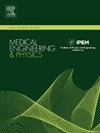Open laminectomy plus posterolateral fusion versus open laminectomy plus transforaminal lumbar interbody fusion surgical approaches for fusing degenerated L4-L5 segment: A comparative finite element study
IF 1.7
4区 医学
Q3 ENGINEERING, BIOMEDICAL
引用次数: 0
Abstract
Various finite element (FE) studies reported the biomechanical effects of fusion surgeries in the lumbar spine. However, a comparative study on Open laminectomy plus Posterolateral Fusion (OL-PLF) and Open Laminectomy plus Transforaminal Lumbar Interbody Fusion (OL-TLIF) for fusing an L4-L5 segment has not been reported in the literature. The present comparative FE study evaluates the biomechanical variations in an L4-L5 segment fused using OL-PLF and OL-TLIF surgical approaches. The three-dimensional implanted models were constructed from a computed-tomography scan dataset using image processing software. The models were simulated for the physiological movements such as lateral bending, flexion and extension. The OL-TLIF model had a considerably larger peak equivalent strain than the OL-PLF model under extension (126 %), lateral bending (88 %) and flexion (13 %). However, in both implanted models, a peak equivalent strain above the compressive yield strain limit of the vertebra (0.007) was observed over 60 % of the L4-L5 fused segment, indicating an imminent post-operative bone failure under the imposed loading conditions. The maximum equivalent strain observed in the disc and endplates of the L3-L4 segment was substantially larger to initiate the adjacent segment degeneration. No discernible biomechanical benefits were observed for the OL-TLIF or OL-PLF approaches in fusing the L4-L5 segment.
开放式椎板切除术加后外侧融合术与开放式椎板切除术加经椎间孔腰椎椎体间融合术融合退化的 L4-L5 节段的手术方法:有限元比较研究
多项有限元(FE)研究报告了腰椎融合手术的生物力学效应。然而,关于开放式椎板切除术加后侧融合术(OL-PLF)和开放式椎板切除术加经椎间孔腰椎椎体融合术(OL-TLIF)融合 L4-L5 节段的比较研究尚未见文献报道。本 FE 对比研究评估了采用 OL-PLF 和 OL-TLIF 手术方法融合 L4-L5 节段的生物力学变化。三维植入模型是利用图像处理软件从计算机断层扫描数据集中构建的。模型模拟了侧弯、屈曲和伸展等生理运动。在伸展(126%)、侧弯(88%)和屈曲(13%)时,OL-TLIF 模型的峰值等效应变比 OL-PLF 模型大得多。然而,在这两种植入模型中,L4-L5 融合节段的 60% 都出现了超过椎体压缩屈服应变极限(0.007)的峰值等效应变,这表明在施加的加载条件下,术后骨质即将发生破坏。在 L3-L4 节段的椎间盘和终板中观察到的最大等效应变远远大于邻近节段的退化。在融合 L4-L5 节段时,OL-TLIF 或 OL-PLF 方法没有观察到明显的生物力学优势。
本文章由计算机程序翻译,如有差异,请以英文原文为准。
求助全文
约1分钟内获得全文
求助全文
来源期刊

Medical Engineering & Physics
工程技术-工程:生物医学
CiteScore
4.30
自引率
4.50%
发文量
172
审稿时长
3.0 months
期刊介绍:
Medical Engineering & Physics provides a forum for the publication of the latest developments in biomedical engineering, and reflects the essential multidisciplinary nature of the subject. The journal publishes in-depth critical reviews, scientific papers and technical notes. Our focus encompasses the application of the basic principles of physics and engineering to the development of medical devices and technology, with the ultimate aim of producing improvements in the quality of health care.Topics covered include biomechanics, biomaterials, mechanobiology, rehabilitation engineering, biomedical signal processing and medical device development. Medical Engineering & Physics aims to keep both engineers and clinicians abreast of the latest applications of technology to health care.
 求助内容:
求助内容: 应助结果提醒方式:
应助结果提醒方式:


